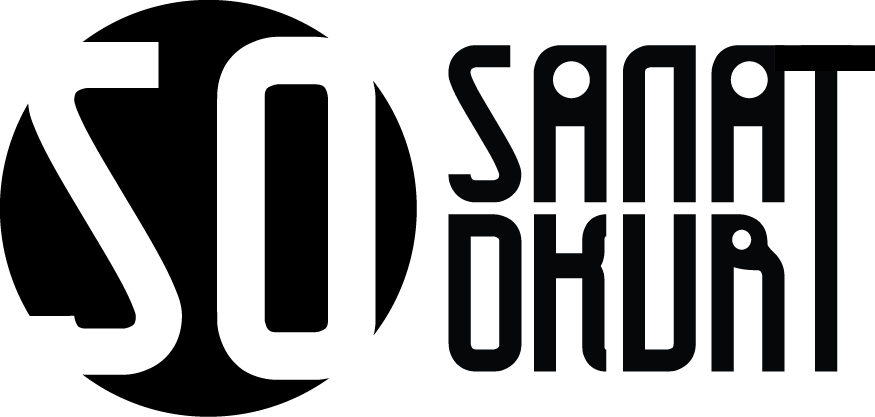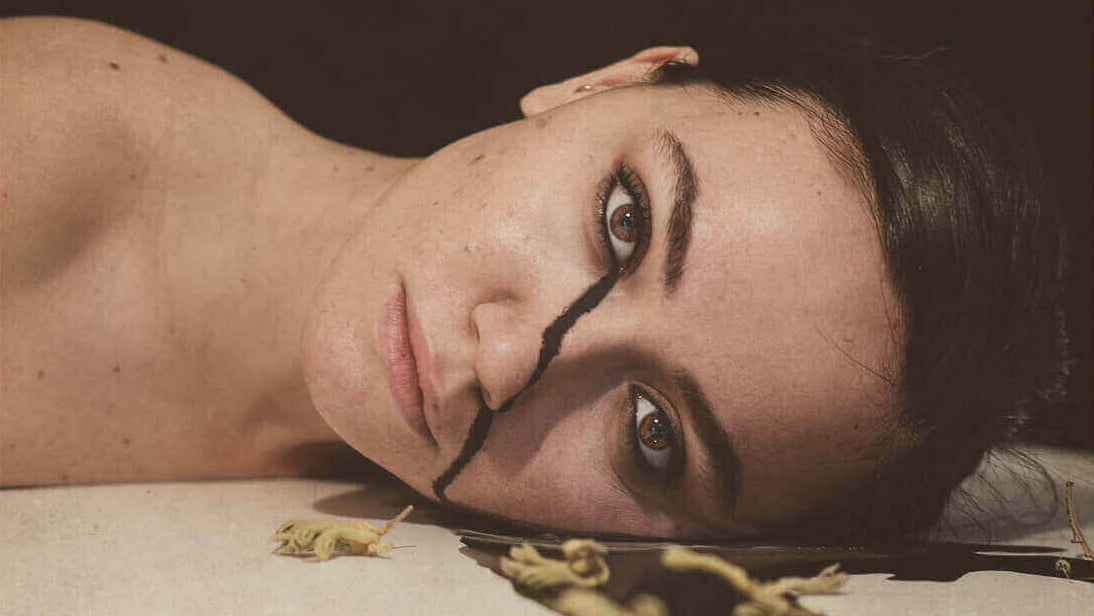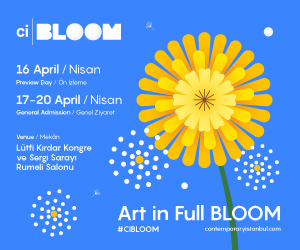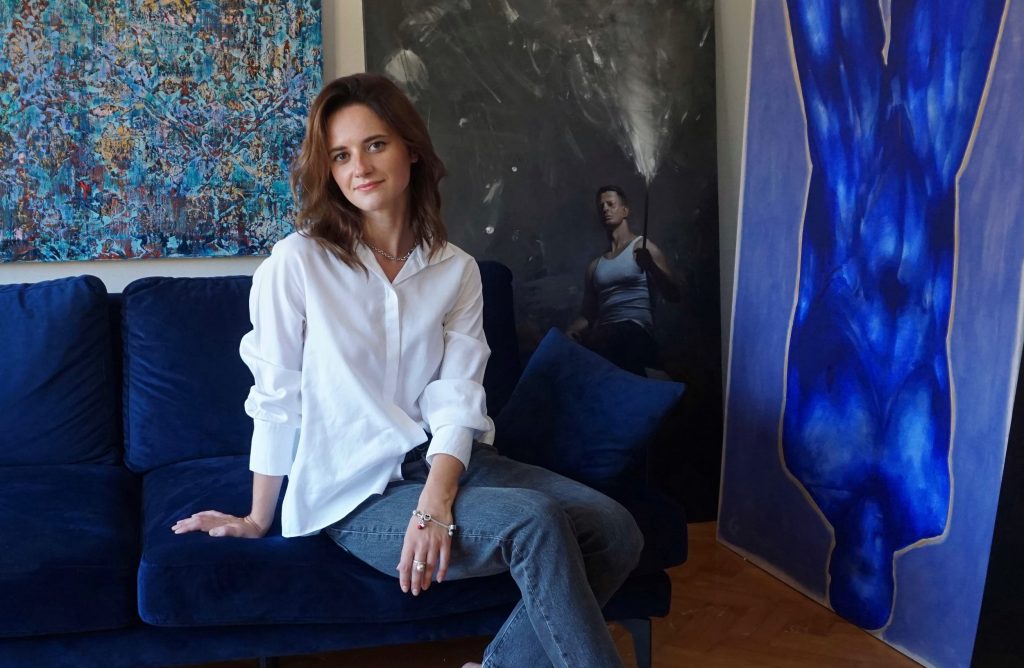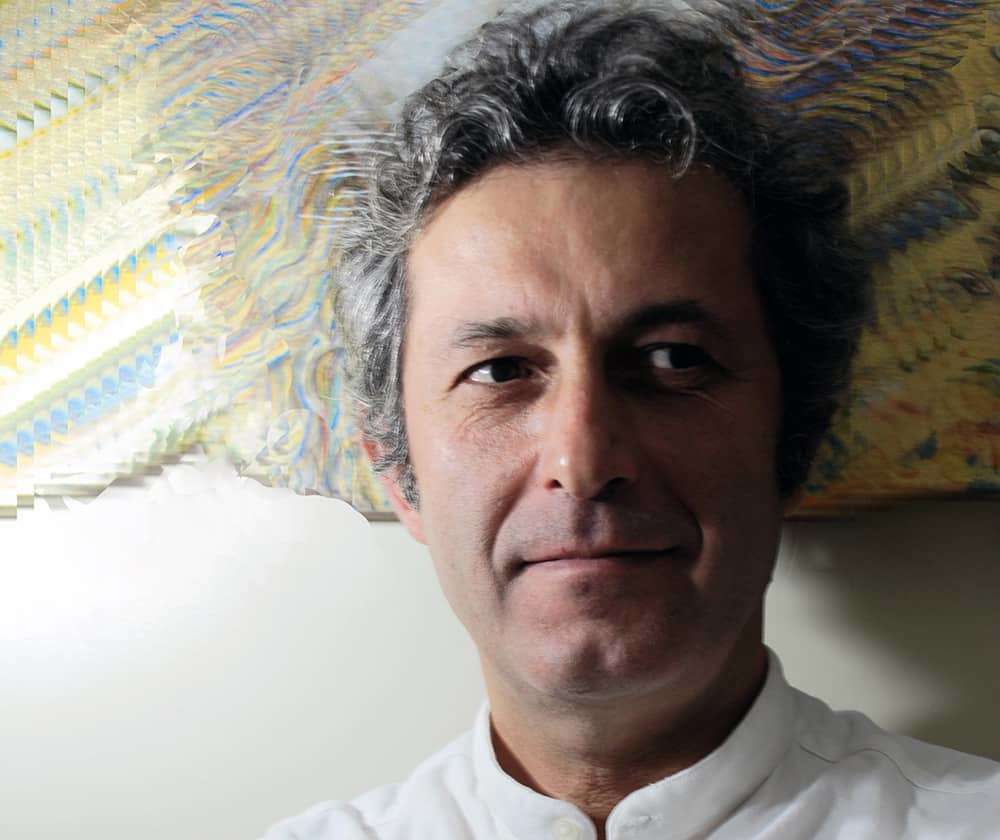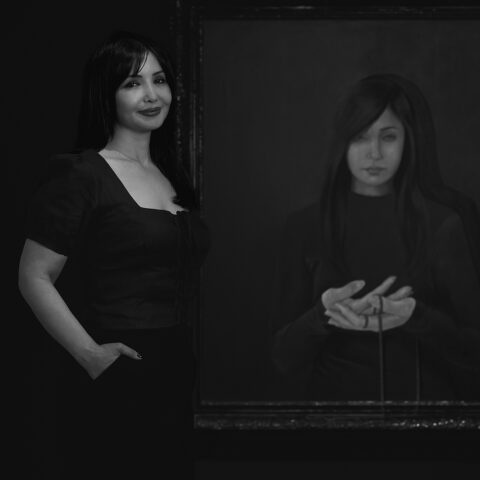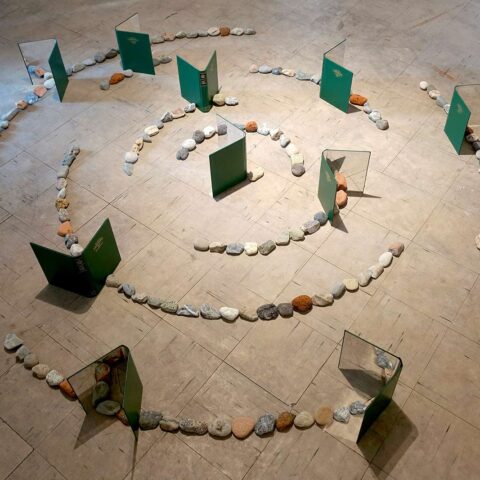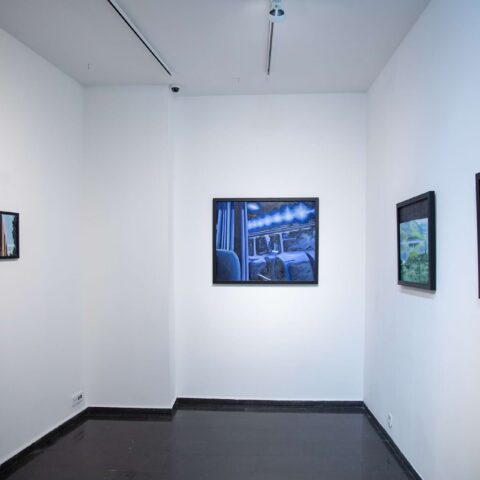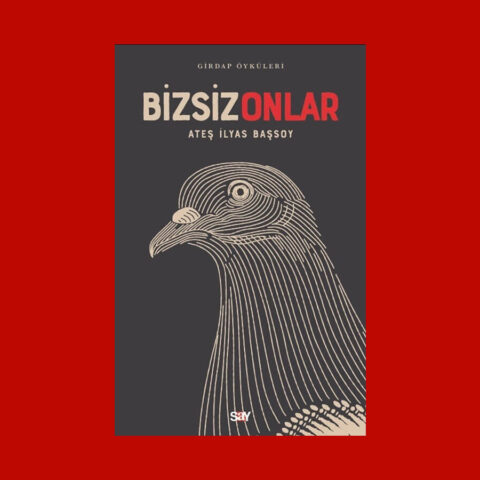Barış Celiloğlu İle Ödüllü Filmi Lockedown Locked In Üzerine Bir Söyleşi
Director Barış Celiloğlu, who lives in London, has developed a digital theater project called Lockedown Locked In/Karantinada Mahsur, on the increasing femicide and domestic violence during the quarantine period, within the theater company Theater East N Bull, with 70 artists from nine countries with her theatre company Theatre East N Bull of which she is the founder. We shared the news of this with you in the past months.
Last week, Barış Celiloğlu announced on social media that they received the first award in the category of “Best Experimental Film” from the Berlin Indie Film Festival for her movie Lockedown Locked In.
We asked our questions about “Lockedown Locked In” to director Barış Celiloğlu, who attracted our attention both by the subject of her project focusing on femicide and by bringing together many female artists from different countries online.
We have learned that your project “Lockedown Locked In”, which we have been watching closely and eagerly awaiting to see, received the first award in the “Best Experimental Film” category from Berlin Indie Film Festival. Congratulations to you and all the creatives in your team. Can you tell us about your project; What is it about? What kind of process and motivation is it the product of?
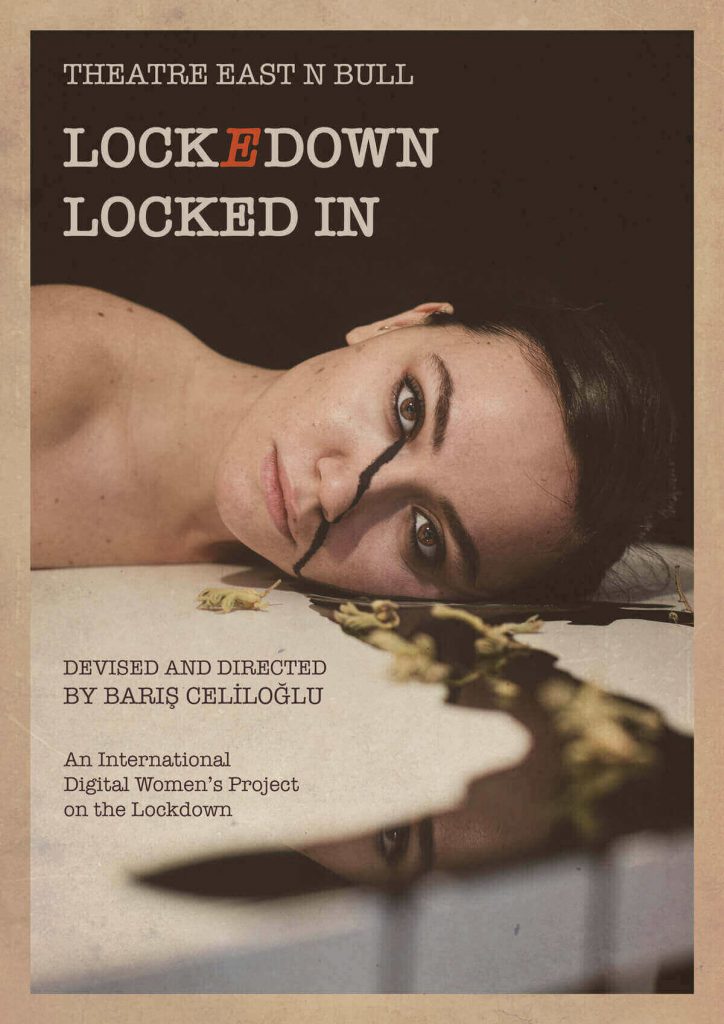
Thank you very much! As the whole team, we are very happy with this award as well as the others that we got from International Barcelona Film Festival, IndieFest of California and Athens International Art Film Festival. Last year, when the lockdown first started, news of domestic violence and incidents of femicide began to pour in from London and Istanbul. As a woman, this made me very sad. I felt the horror of the situation very deeply and immediately looked at the numbers. In the first two weeks of the lockdown, I learned that 14 women in London and 21 women in Istanbul were killed by their husbands/boyfriends at home. I immediately decided to make a digital theater project on this issue so that it would come to the fore because at first it was not covered in the news in every country. It was just mentioned on social media. First, I talked to writers and actors in Britain and Turkey fırst, and they were very interested. At that time we were all confined at home and such a social responsibility project was very urgent and important to us all. Also, these great actors and writers are artists that I have worked with over the years and who know my work well in one way or another. Then I thought of including Spanish, Australian and Greek writers and actors I knew. When they accepted to join us the project suddenly became a big international project.
Meanwhile, I asked Victor Liapin, a Russian writer I know to help me reach some Russian actors as well and he kindly put me in contact with some wonderful actors from Russia. It was quite hard because they were amazing actors and it was very hard to choose a few out of many! Then I met Russian writers through John Freedman, an English director who worked in Moscow for years. There are also wonderful poets and visual artists from Cyprus, Britain and Turkey. For the first three months, I had meetings with writers on Zoom and asked them to research specific incidents of violence against women in their own country by briefing them on the subject. I also asked them to write these monologues in various styles by giving examples. I had the monologue drafts changed or shortened by meeting again, and they were finally ready. Then Zoom rehearsals started with the actors, and after a few rehearsals, the actors started recording themselves and sending them to me. The difficulty in this process was that we could not go and shoot in those countries, but in the end, we reached successful videos after a few takes by giving advice on light and camera angles on Zoom. This process also took a few months and finally editing process started, which was the most difficult and long lasting. It took almost ten months to put the whole project together but it finally happened and it won the award at the Berlin Indie film festival and the other awards. I am very happy that all the hard work of all of us has paid off.
Now that we have established that Lockedown Locked In is an international project consisting of Turkish, Russian, Greek, Cypriot, Spanish, Italian, Australian artists, who do you work with in the project exactly?

Writers such as Onsun Meryem, Aysel Karaca, Yapıncak Gürerk, together with actresses such as Halide Eşber (also a writer), Naz Yeni, Ada Burke, Dilek Yorulmaz, İrem Sayılgan Basil, Gulistan Sarbas, Aslı Özgönül and Ezgi Bakışkan Barış, are from Turkey. Wonderful poets such as Betül Dünder and Yıldız Çakar also participated with their great poems. Outstanding visual artist Zehra Doğan participated with her magnificent work of visual art. The main core team of the project consists of video artist and graphic designer Çiğdem Boru, editor and video artist Şeref Özdemir, sound designer Ceren Ayşe Özbudun and composer Ezgi Günüç. Çiğdem Boru and Şeref Özdemir also undertook the cinematography of some pieces. Translator Berna Vardar did the translations of the monologues. Aslı Bayrak was the face of our latest film poster. I am really proud of my whole team.
As actors, Nuria Benet, Antonio Gil, Alexandra Restrepo, Montse Gili, Montserrat Roig De Puig, as writers Laura Aparicio, Esther Lazaro, Elena Belmonte and Cristina Simon Mencion joined us from Spain; writers and actors from Greece such as Anastasia Revi, Matina Kartsiouna, Lydia Vie, Sevi Filippidou, Tania Batzoglou, Nina Rapi, and Elena Mochla; Writers and actors from Russia such as Maria Kroupnik, Nina Belenitskaya, Marina Krapivina, Polina Glukhova, Natalya Milantyeva, Elizaveta Kovalski, Saba Bakhisheva, Elena Seregina, Aleksandra Kareeva, Julia Chesnyak, Angelina Debor, Natalya McDonald; poet Neşe Yaşın, artist Chara Savvidou and singer/composer Eleni Skarpari from Cyprus, visual artist Salma Ahmad Caller, writers Charlotte Jennings, Nisha Bhakoo, Dzifa Benson, actors Isaiah Bobb-Semple, Schiekelle Collu, Elly Beaman-Brinklow and Fiona Dawson from Britain, Patrizia Paolini from Italy and Margaret Cohen from Poland; from Australia, writer Jeanette Cronin, actors Jane Phegan, Nikita Waldron and wonderful Belinda Giblin contributed a great deal to Lockedown Locked In with their awesome creativity. The project was completed after an intensive work period of 14 months and will be released in film festivals and later on digital platforms after November. Since film festivals have strict rules regarding premieres, we cannot show the project until the festivals take place.
Your project consists of 8 episodes. This number 8 means a lot obviously. What was the importance of this during the development of the film?
The reason why the project consists of eight episodes is related to the homicide timeline of domestic violence. The project’s structure follows this timeline which consists of 8 stages. This was very important to me because I learned from women’s organizations in England that men kill their wives in 8 stages. In other words, according to the experiences of women’s organizations, femicide takes place in eight stages. The first two stages are the stages where men develop the relationship quickly by treating the woman like a queen in a short time, during the third stage they begin to restrict the freedom of women such as talking on the phone with their loved ones and start even controlling all their relationships. Verbal and emotional violence begins in the fourth stage and turns into physical violence in the fifth stage. In the 6th stage, the beating increases, in the 7th stage, the man plans to kill, and in the 8th stage he kills. I wanted the project to reflect the stages of violence, starting with coercive control and pressure and escalating to murder, meanwhile with the escalation of dramatic tension. Based on this fact, I decided to develop the project in eight episodes.
While accustomed to rehearsing on stage or in a physical place; Has it been difficult in this process to bring together artists, writers and directors from different countries on the same platform? Zoom was your co-working space, right? What happened during the rehearsal process?

During the pandemic, many stage actors and directors all over the world continued to make theatre in digital environment by writing monologues and filming them. As you’d know, some theatre groups also released their previously videotaped plays digitally. All these were very valuable efforts to keep the theatre scene alive. It wasn’t hard for me to bring these teams together because I knew most of them personally and they knew my work and they were all very sensitive artists about the topic of femicide. So I was lucky to have this huge network of actors, writers and other artists such as poets and visual artists. I first started Zoom rehearsals with 15 artists from two countries. It was really easy and fun. When the number of countries increased to eight, the total number of artists with writers, actresses and other artists increased to 70, which was a huge number of course. In this case, I had to organize my day very well. Sometimes the internet did not work, and sometimes we had to work much more slowly because artists had other personal commitments etc, and these were a bit difficult from time to time, but I can say that it was not very difficult in general at all. On the contrary, it was overall very enjoyable and smooth. We all had fun and deepened the characters with pleasure on Zoom rehearsals. The real challenge came when the actors were self taping. There were technical problems in some cases. Either the light was bad or the images were grainy depending on both this and the camera or phone used. At this stage the monologues had to be shot over and over again. These shots just got better with our advice on lighting and camera angles. In other words, every day when the images came, the editor Şeref Özdemir and I watched them one by one and came to a decision, and I immediately informed the actors as to how to shoot again by writing or calling them. This way, we ensured that the shooting quality was also better. Zoom rehearsals were very enjoyable for actors and me. Of course, to what extent this is theatre is debatable. After all, theatre is an art that is staged live and physically in a space and shared with a live audience. The digital environment is different than this naturally, but I think it has been a very positive way out for us in the pandemic environment and at the same time taught us new skills and dexterity. For example, in this work, I learned a lot about making films, and eventually I made a few short films. From now on, I will use digital work and video art more in theatre because it is also a tool that enriches plays. As a director, I like multi-platform work more and I think working in the digital environment has allowed us to learn these tools better.
What kind of feedback did your project have in other countries with which you cooperated for your Lockedown Locked In project, which has also become known in Turkey? Are you getting support? What are the reactions?
Our project attracted a lot of attention in other countries as well as Turkey and Britain. A digital platform in Australia might screen it in the new year. Likewise, digital platforms in the UK are also very interested because femicide became an urgent topic after a young woman named Sarah Everard was kidnapped and killed by a police officer during the lockdown. This was a very sad incident that shook people badly over there and caused demos and protests. There is also the possibility that our project might be shown on Greek national television next year. It is not certain but it is a great possibility. Moreover, film festivals have been greatly interested in our project. As you know, we have already received various awards from four international festivals. As the whole team, we are very happy with the ‘Best Experimental Film’ award from Berlin Indie Film Festival as well as the others that we got from International Barcelona Film Festival (Best Poster for our designer Çiğdem Boru), IndieFest of California (Award of Merit to the whole Ensemble in Social Justice category) and Athens International Art Film Festival (Best Original Script for all our writers & Best Sound Design for our sound designer Ceren Ayşe Özbudun). After these film festivals take place, I would like to deliver it to many women’s organisations all over the world so that they can show it as well. A few of these organisations supported us by providing us with the data and information on femicide and domestic violence incidents during the lockdown which was very important and I am grateful for it. We also got support from a few sponsors such as Maydenim Textile Company from Turkey that helped us with funds to initiate the project and Kadraj Productions from Turkey will be doing the sound correction in kind and Medya Centre from London UK by letting me use their editing studio in kind. These are all huge as a support really and I am grateful for them.
With the pandemic, interest in digital works has increased. Did the increase in productions in the digital field and the fact that you devised your Lockedown Locked In project as a digital theatre project cause any concerns? Do you think the theatre will be effected adversely with the digital being used more?
No, I wasn’t concerned at all. In other words, as I said, both the Zoom meetings with the authors and the Zoom rehearsals were very enjoyable and productive. Naturally, we couldn’t record all the monologues with my core team except for the ones that were shot in Britain and Turkey. According to my instructions, the actors recorded themselves or their friends helped. I was just concerned a bit when the first videos came very grainy. Then I was concerned a bit due to the overall quality of the films and the project. If the image quality obtained after months of work was grainy, all that effort would have been wasted. That’s why I talked to the actors one by one and even did live Zoom shots with some of them as and when necessary. Each monologue was shot at least three or four times and at the end of this process we got quality visuals. I am very grateful to those actors who had to record several times. Otherwise devising these pieces digitally was wonderful. I thoroughly enjoyed it and it was a lot of fun! I also don’t have any concerns about digital world taking over the theatre. I think live theatre will always exist but the only concern I have is the number of theatres struggling financially to survive. Some theatres will close as they lose funding. I hope this issue is tackled by the governments properly and they invest in art rather than in defence and proxy wars.
Are you considering similar digital theatre projects? What are your future plans for your art?
Yes, I will definitely do digital work as well from now on. Theatre can never stay in the background for me because nothing can replace it, but I definitely plan to use digital tools as part of my theatre work from now on.
Also, I would like to thank every single artist whose names I have mentioned above who helped me realize this project. Without their intense and passionate work, this project would not have been possible. I also hope that this project will make femicide “more visible as an issue” in all countries where it is screened, and that it can create new conversations and put pressure on those who make and enforce laws. I hope it will contribute to and help the struggle of women in Turkey and Britain and around the world.

